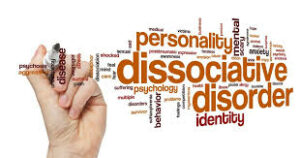Dissociative anxiety disorder is a mental health condition characterized by feelings of detachment or estrangement from one’s own thoughts, memories, body, or surroundings. People with this condition may feel like they are watching themselves from outside their body, or like they are in a dream. In this blog post, we will discuss the symptoms of dissociative anxiety disorder, how to recognize it, and how to get help.
Contents
What Is Dissociative Anxiety?
 Dissociative anxiety is characterized by a feeling of disconnection from oneself. This can manifest as depersonalization, derealization, or dissociative amnesia. People with dissociative anxiety often feel disconnected from their own thoughts and emotions. They may feel like they are observing themselves from outside their body.
Dissociative anxiety is characterized by a feeling of disconnection from oneself. This can manifest as depersonalization, derealization, or dissociative amnesia. People with dissociative anxiety often feel disconnected from their own thoughts and emotions. They may feel like they are observing themselves from outside their body.
In simple words, dissociation refers to a split in consciousness whereby information is compartmentalized in such a way that some of it is accessible to an individual while the rest is not. Dissociative anxiety disorder (DAD) occurs when dissociation interferes with an individual’s daily functioning to the extent that they experience significant distress or impairment.
Dissociative anxiety disorder is a relatively rare condition, but it can be very debilitating for those who suffer from it. The exact causes of DAD are not known, but it is thought to be the result of a combination of factors.
Therefore, if you are struggling with this condition, it is important to seek professional help. A mental health professional will be able to assess whether you are suffering from dissociative anxiety disorder and provide you with the necessary treatment.
How Do I Know If I’m Dissociating?
It might be difficult to know if you’re dissociating because it feels like daydreaming or being in a trance. Some of the symptoms that may help you realize that you’re dissociating are:
Disconnection from surroundings
 This might sound like zoning out, but it’s different in that you’re not aware of your surroundings. You might be staring off into space and not hearing what’s going on around you. Some common things you might feel:
This might sound like zoning out, but it’s different in that you’re not aware of your surroundings. You might be staring off into space and not hearing what’s going on around you. Some common things you might feel:
- Not hearing people who are talking to you
- Staring off into space
- Daydreaming
- Losing track of time or place
Emotional numbing and blankness
Many people with dissociative anxiety disorder feel emotionally flat or numb. They may have trouble experiencing strong emotions, both positive and negative. This can lead to feeling disconnected from others and struggling to form close relationships. It manifests as:
- Unable to feel love or happiness
- Unable to cry
- Lack of interest in activities that used to be enjoyable
- Feeling like you’re “just going through the motions”
Detachment from reality
People with dissociative anxiety may also feel detached from reality. This can cause them to feel like they’re in a dream or that they’re not really themselves. They may feel like they’re watching themselves from outside their body.
So, these are some common symptoms of dissociative anxiety. If you’re experiencing any of these, it’s important to seek help from a mental health professional. Dissociative anxiety is treatable and there are many resources available to help you recover.
What Causes Dissociative Anxiety?
 The causes of dissociative anxiety are not fully understood, but it is thought to be the result of a combination of psychological and physical factors. Some of the possible causes include:
The causes of dissociative anxiety are not fully understood, but it is thought to be the result of a combination of psychological and physical factors. Some of the possible causes include:
- Trauma or stress: Dissociative anxiety may be triggered by a traumatic event or a period of prolonged stress. For example, it may be triggered by a car accident, a natural disaster, or a violent assault.
- Genetics: This may be more common in people who have a family history of anxiety disorders or other mental health conditions. If you have a parent or grandparent with an anxiety disorder, you may be more likely to develop dissociative anxiety.
- Brain chemistry: Imbalances in certain chemicals in the brain (such as serotonin and norepinephrine) may play a role in dissociative anxiety.
- Medical conditions: Sometimes, dissociative anxiety can be a symptom of another medical condition, such as an autoimmune disorder or a thyroid condition.
These are some of the possible causes, along with these there are some possible triggers that can bring on dissociative anxiety. Some of the more common triggers include:
- Prolonged stress: If you’re under a lot of stress for a long period of time, it may trigger dissociative anxiety. This can be from work, school, or personal relationships.
- Changes in routine: Something as simple as a change in your daily routine can trigger dissociative anxiety. This can be a change in job, moving to a new house, or having a baby.
- Sudden life changes: Sudden life changes, such as the death of a loved one or getting divorced, can also trigger dissociative anxiety.
All in all, these are some common causes and triggers of dissociative anxiety. If you think you may be suffering from this disorder, it’s important to talk to a mental health professional to get a proper diagnosis and treatment plan.
How Does It Impact Life?
Dissociative anxiety can have a number of different effects on a person’s life. Some of these are listed below:
- Interference with work, school, or other important activities
- Avoidance of people or places
- Intense fear or anxiety in situations where others do not feel the same way
- Feelings of disconnection from self or the world around them
- Loss of interest in things that used to be enjoyable
- Memory problems
- Difficulty concentrating
- Sleep problems
If you are experiencing any of these symptoms, it is important to reach out to a mental health professional for help. Dissociative anxiety can be a very difficult disorder to deal with on your own. Because it is not as well-known as other anxiety disorders, it can be hard to find information and support.
However, there are treatment options available that can help you manage your symptoms and live a more enjoyable life. If you think you may be suffering from dissociative anxiety, then do not hesitate to reach out to a professional. It can be a very debilitating disorder, but with the right help, you can get better.
How Is It Diagnosed?
 The diagnosis of dissociative anxiety is not always easy. A thorough evaluation by a mental health professional is necessary to rule out other possible causes of the symptoms. This can include:
The diagnosis of dissociative anxiety is not always easy. A thorough evaluation by a mental health professional is necessary to rule out other possible causes of the symptoms. This can include:
- Physical examination
- Psychological testing
- Interviews with family and friends
Each method can help to rule out other potential causes of the symptoms and confirm a diagnosis of dissociative anxiety. It is important to seek professional help if you or someone you know is experiencing dissociative anxiety.
Also, remember that dissociative anxiety is treatable. There are many effective treatment options available. With proper diagnosis and treatment, people with dissociative anxiety can lead healthy, productive lives.
How To Stop Dissociative Anxiety?
It might be difficult to think about how to stop dissociative anxiety because it’s such an ingrained part of who you are. However, there are treatments available that can help lessen the symptoms and improve your quality of life. Let’s outline some ways to treat dissociative anxiety.
Cognitive behavioral therapy (CBT)
CBT is a type of therapy that helps you understand how your thoughts and beliefs contribute to your anxiety. It can help you learn how to change these negative thought patterns and develop healthy coping mechanisms. CBT has been shown to be an effective treatment for anxiety disorders. This therapy works best when it’s combined with exposure therapy, which we’ll outline next.
Exposure therapy
Exposure therapy is a type of CBT that gradually exposes you to the things you’re afraid of in a safe and controlled environment. This can help lessen your anxiety and improve your quality of life. For example, if you’re afraid of heights, your therapist may start by having you stand on a stool. As you get used to this, you’ll gradually work your way up to standing on a higher platform. In dissociative anxiety, exposure therapy may involve gradually exposing yourself to the things you’re afraid of, such as social situations or crowds.
Medication
 There are several types of medication that can be used to treat anxiety disorders, including:
There are several types of medication that can be used to treat anxiety disorders, including:
- Selective serotonin reuptake inhibitors (SSRIs)
- Benzodiazepines
- Tricyclic antidepressants
SSRIs are the most commonly prescribed type of medication for anxiety disorders, and they work by increasing the levels of serotonin in the brain. Benzodiazepines are a type of sedative that can help to reduce anxiety and promote relaxation. Tricyclic antidepressants work by affecting the levels of norepinephrine and serotonin in the brain.
While medication can be an effective treatment for anxiety disorders, it is not always the best option for everyone. Some people may experience side effects from medication, and some people may not respond to medication.
Join a support group
In a support group, you’ll be able to share your experiences and feelings with others who understand what you’re going through. You may also be able to get helpful advice and tips from other members of the group. Support groups can provide a sense of community and belonging, which can be very helpful when you’re feeling dissociative and anxious.
Self-help tips
There are a few things you can do to help manage dissociative anxiety on your own:
- Identify your triggers: What situations or thoughts cause you to feel dissociative anxiety? Once you know what sets off your anxiety, you can begin to avoid or change those triggers.
- Practice relaxation techniques: Relaxation techniques such as deep breathing, progressive muscle relaxation, and visualization can help reduce anxiety symptoms.
- Exercise: Exercise can help to reduce stress and promote overall physical and mental well-being.
- Limit caffeine: Caffeine can aggravate anxiety symptoms, so it is best to limit or avoid caffeine altogether.
- Get enough sleep: A good night’s sleep is essential for managing anxiety. Make sure to get at least seven to eight hours of sleep each night.
- Calm your mind: Meditation, journaling, and other mindfulness practices can help to calm your mind and ease anxiety symptoms.
So these are some of the few things which can help you out in managing dissociative anxiety on your own. If you want to read and know more about this, please head over to our website.
Dissociative anxiety can be difficult to manage on your own. If your symptoms are severe or preventing you from living a normal life, it is important to seek professional help. Treatment for this condition is numerous and effective, so there is no need to suffer. If you think you may have this anxiety disorder, please reach out for help.
Conclusion
In conclusion, dissociative anxiety is a real and serious condition that can be extremely debilitating for those who suffer from it. If you think you may be suffering from this anxiety, it is important to seek professional help. Because this is not a well-known or commonly discussed disorder, it can be difficult to find information and resources.
However, there are many helpful treatments available that can make a huge difference in your quality of life. Just be sure to reach out for help if you need it. You don’t have to suffer from this anxiety alone. If you would like to learn more about this, please contact Therapy Mantra.
We would be happy to answer any questions you may have. The team of professional counselors at Therapy Mantra is more than happy to help you in your journey to recovery. Contact us today to learn more about our services. You can also book an online therapy session or download our free Android or iOS app.


